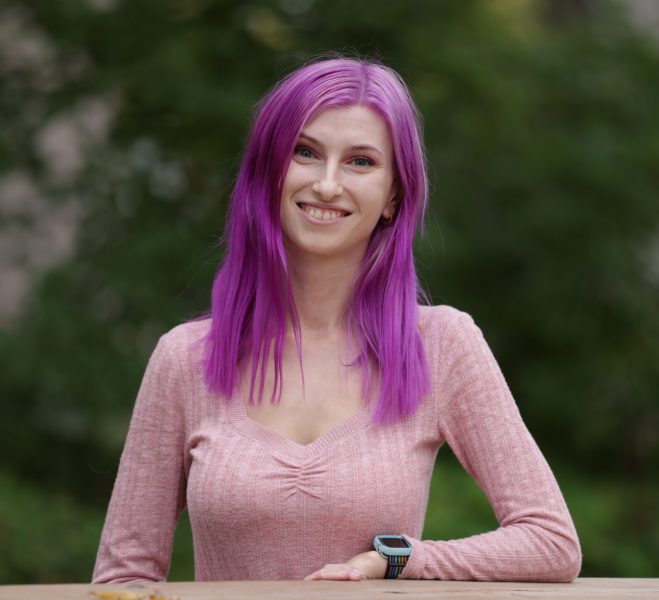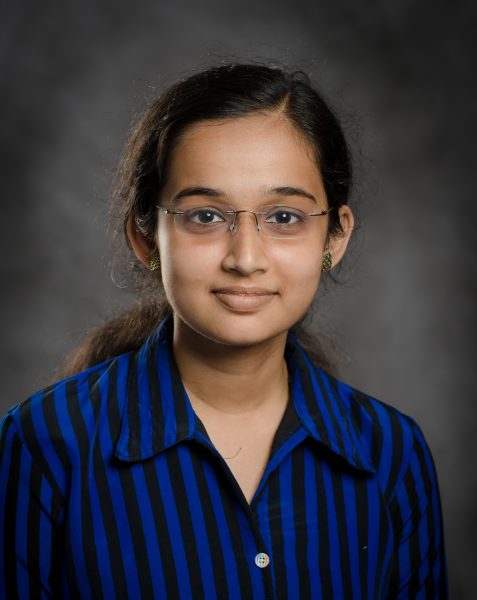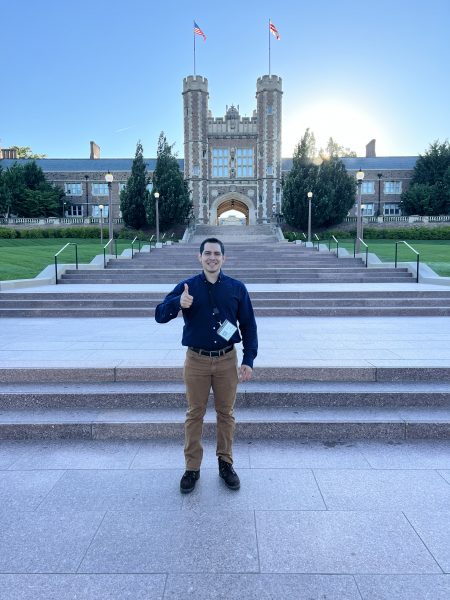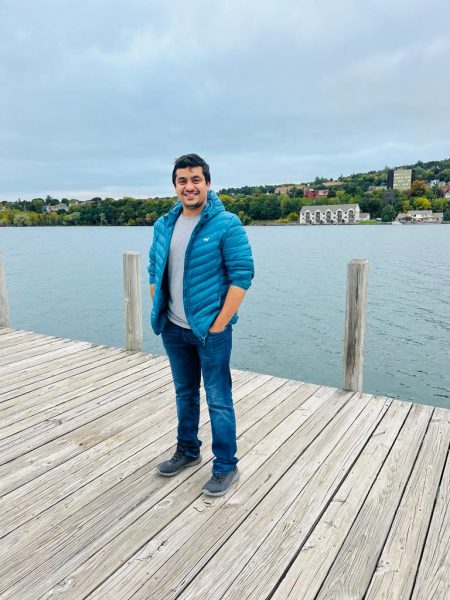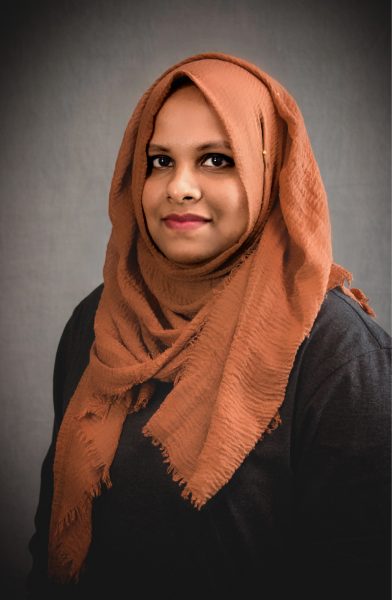As a PhD candidate in civil engineering, my research focuses on water resources engineering, with an emphasis on urban green space and rainfall flood risk equity. My work addresses critical challenges in the Great Lakes region, including the impacts of urban flooding and the role of green infrastructure in promoting urban sustainability and resilience. To assess urban green space and rainfall flood risk, I used high-resolution topography and land cover data, geospatial analysis methods, and socioeconomic datasets to develop comprehensive urban green space and flood risk equity maps. By identifying spatial patterns of flood vulnerability and green space distribution, my research highlights areas where targeted interventions can have the most significant impact. This approach aims to reduce inequalities, build community resilience, and enhance urban health and well-being—especially as extreme weather events become more frequent. These projects deepened my understanding of geospatial and hydrological systems while fostering an awareness of how environmental challenges intersect with social equity.
Interesting stories about and for our students.
Congratulations to the following students who received the Dean’s Award for Outstanding Scholarship! Nominees have demonstrated academic or professional qualities that set them apart within their academic program.
Susan Mathai – Physics
Melanie Ottino – College of Forest Resources and Environmental Science
Ponkrshnan Thiagarajan – Mechanical Engineering – Engineering Mechanics
Andrew Kleehammer – College of Business
Chen Zhao – Applied Computing
Cheng Fan – Electrical and Computer Engineering
Elise Rosky – Physics
Nikhil Mittal – Biomedical Engineering
Shruti Amre – Cognitive and Learning Sciences
Swapnil Bamane – Mechanical Engineering – Engineering Mechanics
Ian Gannon – Geological and Mining Engineering
Congratulations to the following students who received the Outstanding Graduate Teaching Award for their excellence in teaching!
Allyson Fenton – Civil, Environmental and Geospatial Engineering
Ashvin Vinodh – Mechanical Engineering – Engineering Mechanics
Ben Jewell – Mechanical Engineering – Engineering Mechanics
Brilynn Janckila – Humanities
Dakota Locklear – Geological and Mining Engineering and Sciences
Devrim Yagmur Durur – Chemistry
Emma Shedd – College of Forest Resources and Environmental Scinece
Jenna Disser – Biological Sciences
Kan Wang – Biomedical Engineering
Lily Hart – Kinesiology and Integrative Physiology
Meiling Zhou – Mathematical Sciences
Muhammad Danyal – Electrical and Computer Engineering
Rishi Babu – Physics
Samikhshak Gupta – Mechanical Engineering – Engineering Mechanics
Tyler Fbian – Mechanical Engineering – Engineering Mechanics
Tyler White – Mechanical Engineering – Engineering Mechanics
Varsha Vijay Kumar – Electrical and Computer Engineering
Victoria Walters – Applied Computing
The Graduate School is excited to welcome our new students to campus. A summary of upcoming events is below.
- The Graduate School Welcome session is on Friday, January 5, 2024, beginning at 2pm in the MUB Ballroom. A presentation is planned for 2-3pm, and a reception will begin at 3pm. The presentation will be recorded for those unable to attend in person.
- Orientation to Graduate Studies and Research, our online Basic RCR Training, will begin on December 18 for registered students. It must be completed by February 22, 2024 to avoid a registration hold.
- Other orientation events, including a tour by the Library and welcome reception by the Graduate School, are described and summarized on our website.
- We will remind students to register and confirm their enrollment by January 3rd.
- Steps after admission are summarized on our website.
- Resources applicable to new students are summarized on our website.
We look forward to working with you to welcome our new and returning students to the 2023-24 academic year!
From the very beginning of my academic journey, the intersection of chemistry and biology has thrilled me, as it embodies the essence of interdisciplinary challenges that encourage innovative thinking. Having BS and MS in biochemistry, I joined the Chemistry Department at Michigan Technological University in August 2018 as a Fulbright Graduate Student from Ukraine. Under the mentorship of Dr. Marina Tanasova, I pursued chemical biology research to utilize small molecules produced through synthetic chemistry for the study of complex biological systems.
My Ph.D. research focuses on the development of tools for the targeted detection of disease-relevant sugar transporters (GLUTs) to advance diagnostic and imaging capabilities. Working in Dr. Tanasova’s lab has been an incredibly rich research experience, allowing me to master a diverse set of skills and carry out the whole research project from the beginning to the end. I truly enjoy the process of designing molecules, synthesizing them, and validating their properties through a range of analytical techniques. Witnessing the colorful array of fluorescent probes we have developed and applying them for cancer research has evoked excitement in me. I am genuinely excited about the potential outcomes of my research, as they contribute to the advancement of novel strategies for targeting cancers in both diagnostic and therapeutic applications. Collaborating with other researchers and students, sharing my research, and promoting a safety culture within my department and on the national level have been rewarding and enriching experiences for me during my Ph.D. I am grateful for the opportunities I have had during my graduate program. I am confident that the training I received at MTU has provided me with a solid foundation to realize my research aspirations.
I am honored to be selected as one of the recipients of the Doctoral Finishing Fellowship. I would like to thank the Graduate Dean Awards Advisory Panel and Dean for granting the fellowship to me during this crucial phase of my Ph.D. journey. It is indeed an invaluable opportunity to dedicate my time and efforts to writing my dissertation, preparing for the defense, and embarking on the next chapter of my scientific career. I would like to thank my research advisor Dr. Marina Tanasova for the support and guidance she provided over the last 5 years. Her belief in my potential paved the way for me to transition from a Master’s student to a doctoral candidate, and I am truly grateful for the mentorship and encouragement she has provided. Moreover, I wish to express my gratitude to the Chemistry Department, Dr. Sarah Green, my committee members, and all the individuals who have played a role in shaping me into an independent research scientist.
I began my Ph.D. journey in Chemistry in the Fall 2019 under the guidance of Dr. Tatyana G. Karabencheva-Christova. Prior to joining MTU, I earned a master’s degree in Applied Chemistry from Mahatma Gandhi University and a bachelor’s degree in Chemistry from Calicut University, India. It was during my master’s program that I developed a profound interest in computational chemistry, which ultimately led me to pursue advanced studies in this fascinating field.
My research primarily focuses on exploring enzyme characteristics and mechanisms through the application of multilevel computational methods, including Molecular Dynamics (MD), Quantum Mechanics (QM), and combined Quantum mechanics/Molecular mechanics (QM/MM). During my Ph.D., I had the opportunity to contribute to NIH-funded projects on the non-heme Fe(II) and 2-oxoglutarate dependent oxygenase, Fat mass and Obesity Associated Protein (FTO), and the Zn(II) dependent metalloprotease, Matrix metalloproteinase-1 (MMP-1), both of which have crucial implications in various types of cancers. In the former project, I investigated the enzymatic mechanism of FTO with its major substrate, N6-methyladenine in single-stranded RNA, and explored the influence of clinically relevant mutations Arg316Gln and Ser319Phe on different stages of the catalytic cycle. In the latter, I unraveled the water-mediated catalytic mechanism of MMP-1, conformational dynamics and long-range correlated motions assisting in catalysis and the role of the catalytic and structural Zn(II) ions in the overall stability of enzyme.
I am immensely grateful to the Graduate Dean Awards Advisory Panel and the Dean for recognizing my efforts and awarding me the Doctoral Finishing Fellowship. I extend my heartfelt gratitude to my advisor, Dr. Tatyana G. Karabencheva-Christova, whose guidance and support have been invaluable throughout my Ph.D. journey. I also extend my thanks to all the faculty and staff in the Chemistry department for their encouragement and assistance.
First, I would like to extend my gratitude to the Graduate Dean Awards Advisory Panel for recommending me for this prestigious award. I also want to acknowledge the department of Civil, Environmental, and Geospatial Engineering for its support during my PhD studies. Most importantly, I thank my advisor Dr. Daisuke Minakata, who has guided me throughout my journey and equipped me with critical thinking skills. Without his unwavering commitment, understanding, and guidance, I would not have achieved the level of proficiency as a PhD student that I possess today.
I have been passionate about chemistry ever since I was in high school. Chemistry teaches you how matter transforms, and because matter is everything we are surrounded by, chemistry essentially helps you to understand the world. Many of the big problems our world faces can be tackled in some way from a chemical perspective. Energy, pollution, water scarcity, health, are some of the global issues that are actively being addressed with chemistry.
During my PhD, I have translated my chemistry background to the environmental engineering field by understanding how pollutants are transformed in natural and engineered water systems, such as lakes, rivers, or water treatment plants. My philosophy is that the molecular details of those chemical reactions have a profound influence on the rate of degradation and products distribution. This led me to publish papers where I show that we can use results from molecular simulations to explain phenomena at the bulk scale such as how fast reactions take place. Understanding these details will enable engineers to optimize operational parameters on the removal of contaminants, and will inform environmental policy makers about the fate of toxic compounds once released to bodies of water.
Since I began learning the basics of science, the effects of vibrations on environments has always fascinated me. As Nikola Tesla said, “If you want to find the secrets of the universe, think in terms of energy, frequency and vibration.” It was with this aim that I started my Ph.D journey in Fall 2020.
My research has been in regards with “Metastructures”. These are unique structures which absorb vibrations in a system in particular frequency range, often called as ”bandgap”. It is because of this bandgap phenomenon that metastructures are widely used to mitigate vibration effects. Owing to large number of applications, it becomes important to estimate bandgaps in a metastructure to predict the frequency range in which the vibrations will be absorbed so that metastructures can be designed for various applications.
Through my research, I have aimed to developed new methods to estimate these bandgaps. The current methods available in the literature require a physics-based model of the metastructure (analytical model, finite/spectral element model) in order to estimate bandgaps. However, for various anisotropic materials, the material properties are difficult to quantify accurately which makes the physics-based model inaccurate. My research aims to overcome these limitations by developing methods which estimate bandgaps using purely experimental data. We have used the experimental data to study how a vibration wave is propagating through the metastructure (dispersion curve) and estimated bandgaps. Various other techniques such as substructuring, data-driven modeling algorithms were utilized. The developed techniques considerably reduced the design efforts required and made the entire design process much easier.
The funding provided by this fellowship will truly be helpful for me in putting all my energies in finishing my thesis in time and complete my Ph.D.!
I am grateful to the Graduate School for granting me this fellowship.
My advisor, Dr. Sriram Malladi has been more than helpful in guiding me through various ups and downs throughout my Ph.D journey. I am truly thankful for the relentless support he and his family has given me. Last but certainly not the least, I am thankful to my family i.e. my wife and my parents for their support in every aspect of my journey!
I started as a PhD student in Atmospheric Sciences at Michigan Tech in August 2018. My interest in Atmospheric Sciences began during an elective course I took while pursuing my master’s degree in physics at the National Institute of Technology (NIT Calicut). Since then, my interest in Atmospheric Sciences has grown, and I have been eager to learn more about it.
My doctoral research focuses on investigating the physical, chemical, and optical properties of aerosols, which are particles suspended in the atmosphere, specifically those emitted from biomass burning. Over the course of five years, with the support of my advisor and colleagues at Michigan Tech, I have gained valuable knowledge and experience that will undoubtedly benefit me in my future endeavors. Additionally, I had the opportunity to expand my exposure and understanding of the subject through an internship at Pacific Northwest National Laboratory (PNNL), where I worked with Dr. Swarup China. During my internship, I estimated the optical properties of tar ball particles that are formed during biomass combustion. I also studied the physical and chemical properties of aerosols from an Urban polluted region that is highly influenced by biomass burning.
I am grateful to the Graduate Dean Awards Advisory panel for granting me the finishing fellowship award and to my advisor, Prof. Claudio Mazzoleni, for his unwavering support and guidance throughout my PhD journey. I also thank my mentor at PNNL, Dr. Swarup China for his hard work and dedication in helping me complete my PhD. Additionally, I express my thanks to both my current and former research group members for engaging in excellent discussions and fostering a spirit of teamwork. I eagerly anticipate defending my thesis and advancing along my chosen career path.
Ever since my early days as an undergraduate student, I have been captivated by the potential of technology to revolutionize our daily lives. Michigan Technological University has provided an enriching environment for my research endeavors. The collaborative spirit among faculty members and the vibrant research community have fostered an environment for innovative ideas and cross-disciplinary collaborations. Engaging in stimulating discussions with brilliant minds and participating in cutting-edge projects have amplified my intellectual growth and fortified my passion for pushing the boundaries of knowledge in vehicular networking.
I am thrilled to share my remarkable journey as a doctoral candidate at Michigan Technological University. I started my PhD in Fall 2018 in the Electrical and Computer Engineering department. Throughout my doctoral journey, I have dedicated myself to unraveling the complexities of vehicular networking, exploring its intricacies one discovery at a time. By delving into areas such as intelligent transportation systems, vehicle-to-vehicle (V2V) communication, and infrastructure-to-vehicle (I2V) interactions, I aim to contribute to the seamless integration of vehicles into our evolving smart cities.
I am immensely grateful for the support of my advisor, Dr. Aurenice Oliveira, whose guidance, expertise, and unwavering encouragement have been instrumental in shaping my research trajectory.
To all aspiring researchers and technologists, I urge you to embrace your passions and fearlessly pursue your dreams.

